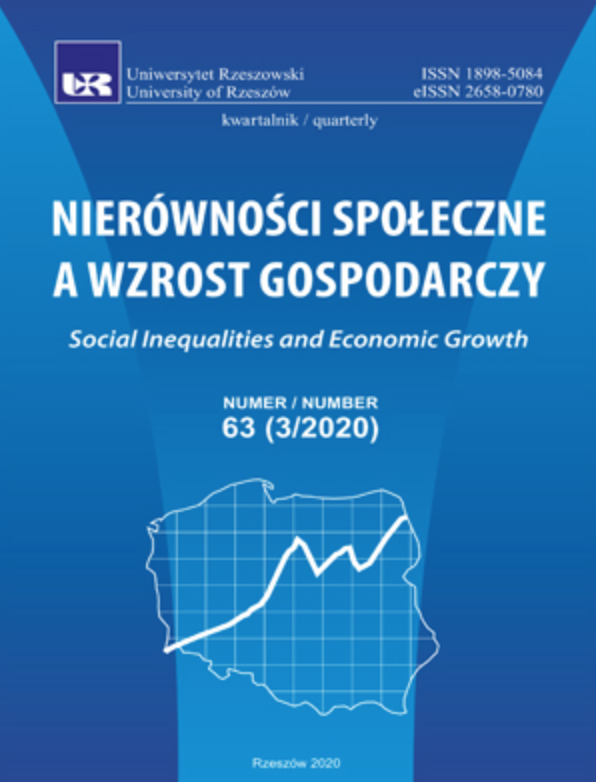Teoria kapitału ludzkiego a minimalne wynagrodzenia w wybranych krajach Trójmorza
The human capital theory and minimum wages in selected Trisea countries
Author(s): Jurij RenkasSubject(s): National Economy, Public Finances, Socio-Economic Research
Published by: Wydawnictwo Uniwersytetu Rzeszowskiego
Keywords: fair wage; minimum wage; human capital; Trisea countries
Summary/Abstract: The aim of the paper is to present a method for estimating the percentage compliance ofstatutory minimum wages in selected Trisea countries with minimum wages established on the basisof human capital theory. The first part of the study deals with the essence of capital, human capitaland fair wage. Thermodynamic theory enables a deeper understanding of the nature of capital andperception the complementarity of capital and labor, from which follows a set of basic economicconcepts. From this basis are developed the Human Capital Measurement Model and the FairPay Model. The models used to measure the value of human capital presented in the article helpdetermine the minimal fair wages in Poland and selected Trisea countries. These models are based onfundamental laws of reality: the first and second laws of thermodynamics and the principle of minimalaction. Especially the second law of thermodynamics in its basic formulation is indispensable ineconomic considerations, because the human body has the features of a heat engine and experiencesspontaneous, random dispersions of energy. Fair wage means that the earnings of two workingparents allow the two descendants to reach the level of human capital they achieve, i.e. this wageguarantees the preservation of human capital. The article ends with a comparison of the percentagecompliance of statutory minimum wages in selected Trisea countries with minimum wages set onthe basis of human capital theory. This percentage shows the similarities and differences betweenthe economies of the countries surveyed in terms of costs of living and indicates the possibility ofcreating their own economic union.
Journal: Nierówności Społeczne a Wzrost Gospodarczy
- Issue Year: 2020
- Issue No: 64
- Page Range: 120-134
- Page Count: 15
- Language: Polish

